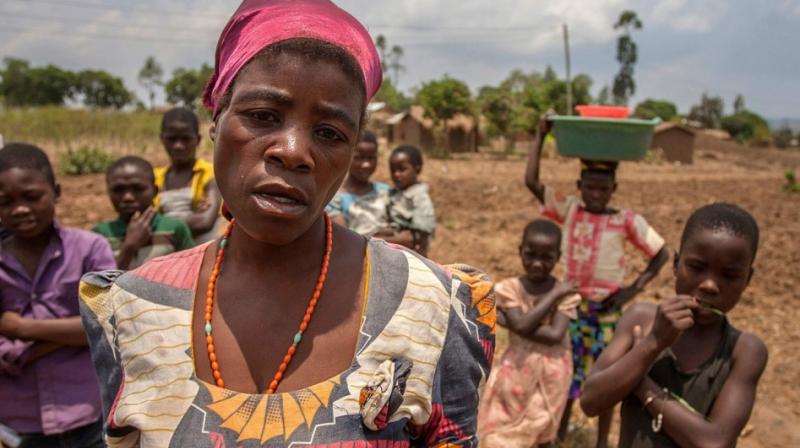Vampire scare leads to panic and vengeful mobs in Malawi
The latest bout of vampire rumours allegedly originated in Mozambique and spread across the border to Malawi's districts.

Lilongwe: Jamiya Bauleni is one of the people claiming to have fallen victim to a wave of alleged vampire attacks that have triggered deadly vigilante violence in Malawi.
She recounted her experience before barefoot children in Ngolongoliwa village in the country's south, which has been at the heart of recent panic over rumours of vampire activity.
Her story is part of a long line of similar testimonies in Malawi, where belief in witchcraft and vampire activity is widespread and rouses revenge mobs that kill those suspected of black magic.
Blood
Bauleni, a 40-year-old single mother with one child, said that an attacker sucked her blood on the night of October 2 at her home in Thyolo district.
"This is not hearsay," she told a fascinated crowd as people edged closer to listen. "I know my blood was sucked."
"I saw light on the corner of my roof. I failed to stand up from my bed and felt something piercing my left arm," she said, pointing near her breast.
Bauleni, who makes a living selling wild pea stew, said that before she fell unconscious she heard someone fleeing the scene.
She was taken to a clinic and later discharged after being given vitamin supplements, but she chose not to report the attack.
Seven killed
The latest bout of vampire rumours allegedly originated in Mozambique and spread across the border to Malawi's districts of Mulanje and Phalombe, according to the United Nations.
At least seven people have been killed in Mulanje district after being hunted down, police say.
As public anger over supposed vampires grew, UN workers and US Peace Corps volunteers were pulled out of the region in October but they have now returned.
One purported victim, Florence Kalunga, 27, says she was sleeping alongside her husband in their home when she saw a light "like fire".
"I heard the door open. I felt something like a needle in my finger," she said.
The people targeted by vengeful mobs are often wealthier individuals in rural parts of the southern African country, where grinding poverty and poor educational standards are the norm.
Attack
Entrepreneur Orlendo Chaponda narrowly avoided an attack when 2,000 villagers, some carrying machetes and stones, stormed his home in Thyolo on September 30.
"They said I was keeping blood suckers," said Chaponda, who was out at the time. "They could have killed me if they found me."
He called the police who fired tear gas to disperse the crowd after a five-hour standoff.
"There is no truth about blood suckers, but jealous people and thugs want to take advantage to attack rich people," Chaponda said.
"If you have a nice car, you are a bloodsucker."
Anthony Mtuta, assistant lecturer in anthropology at the Catholic University of Malawi, said the roots of the vampire scares were in "economic hardships and inequalities".
"It's the rich versus the poor. The poor believe the rich are greedy and are sucking the blood of poor people," he said.
Malawi is largely reliant on foreign aid, but some locals view the assistance with suspicion.
Pay back
"To villagers, the thinking is that no gift is for free... you pay back through blood," said Mtuta.
He has researched the vampire phenomenon and has warned that violence would "resurface unless the government learns how to handle contemporary issues".
McDonald Kolokombe, a clerk at the state-run Likhubula forest reserve, noted that the number of tourists visiting the Mulanje area had collapsed since mid-September.
"The communities rely on visitors to feed their families working as tour guides, porters and selling curios," he said.
"We are starving because of a bad rumour about blood suckers," added amateur tour guide Eric Yohane. "It is a big lie."
Malawi's national blood transfusion service — the only institution mandated by the government to collect blood for hospitals from volunteers — says that rumours of vampire activity have also begun to set back activity.
"This issue has affected us a lot. It has prevented us from going to collect blood in the affected areas," said Bridon M'baya, medical director of the service.
At least 250 people have been arrested in Malawi over the mob violence, and 40 more arrested over similar crimes in neighbouring Mozambique.
Malawian President Peter Mutharika was even forced to step in and insist that the government had the situation under control.
"There is no evidence of blood suckers. It's a lie meant to destabilise the region," he said recently. "Those spreading rumours will face the law."

